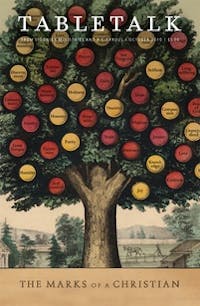
Request your free, three-month trial to Tabletalk magazine. You’ll receive the print issue monthly and gain immediate digital access to decades of archives. This trial is risk-free. No credit card required.
Try Tabletalk NowAlready receive Tabletalk magazine every month?
Verify your email address to gain unlimited access.
As I run the final laps of my race on this earth (however long the Lord allows that to be), one of my greatest joys and desires is to serve the next generation.
When I was in my twenties, I assumed, somewhat arrogantly, that my friends and I had better ideas than anyone who was older than we were. That covered everything from music styles to leadership practices to how to raise a family.
Thirty years and many humbling experiences later, I’m aware that no generation starts in a vacuum. Whether we know it or not, we’re standing on the shoulders, wisdom, and experiences of those who have gone before us, and we should seek to learn as much as we can from them.
I realize that sounds a little selfserving coming from a guy in his midfifties. But many of the young leaders I’ve had the privilege of working with, especially in the areas of church music and worship, understand better than I ever did the importance of benefiting from the past while forging a new path into the future. And I thank God for them.
Last year I gave a message on transferring ministry responsibility to the next generation. In my preparation, I came across some principles for passing the baton in a relay race that are surprisingly relevant for young leaders.
The race is about the baton, not the runners
A relay race is meaningless unless the baton is successfully passed from one runner to the next. A runner without a baton is running in vain.
For Christians, the “baton” is the gospel. As he neared the end of this life, Paul wrote to Timothy, “By the Holy Spirit who dwells within us, guard the good deposit entrusted to you” (2 Tim. 1:14). These are the words of a man who knows he will soon face death and is more aware than ever what must be passed on. “Guard the good deposit.” Guard the good news that Jesus Christ has “abolished death and brought life and immortality to light through the gospel” (1:10). Of all that we receive from those who have gone before us, nothing is more important.
When we’re being mentored, we naturally hope to pick up ways of thinking, practices, and methodologies that are helpful. That’s a good thing. When we spend a lot of time with someone, we might even develop similar vocal inflections, mannerisms, or a way of laughing.
But whatever else you learn from those you’re looking to, make sure you receive the gospel. Whoever your teachers and mentors might be, they aren’t as important as the gospel they’re proclaiming.
The point isn’t to become the next Billy Graham, the next John Piper, or the next whoever. The point is to be faithful to the unchanging gospel: “Christ also suffered once for sins, the righteous for the unrighteous, that he might bring us to God” (1 Peter 3:18). As you apply what you’ve learned from others to your life and ministry, make sure you don’t miss what matters most.
A relay race involves more than one person
In the often individualistic world of track and field, the relay is a unique race. It requires teamwork that other races don’t. The runner who crosses the finish line is integrally dependent on those who have run before him.
Likewise, we need those who have gone before us. We’re running the same race. Hebrews 11 is a clear reminder that we are but one piece of the glorious tapestry God is weaving together for His glory.
Having a relay mindset means being one of the faithful men Paul describes to Timothy (2 Tim. 2:2). What can keep you from being part of the relay team? Rarely interacting with those from another generation. Spending the majority of your time reflecting on the ideas of your peers. Criticizing any idea or practice that doesn’t rate high on the relevance or coolness meter. Only reading books that were printed in the last decade — or worse, confining your reading to the blogosphere or Twitter.
Cultivating the humility that recognizes the need for voices older and wiser than your own isn’t easy. But it’s well worth the effort.
Runners must develop a mutual dependence and trust
Relay runners spend hours together practicing their handoff. They study each other’s habits, know each other’s speeds, and understand each other’s strengths and weaknesses.
While simply listening to teachings of more mature Christians will bear fruit, a secure transfer requires a bond of trust. That trust is developed through shared experiences, open-ended discussions, applying the gospel to sins and successes, and demonstrating a steadfast trust in God in the midst of disagreements and difficulties.
Work hard to find someone you can not only learn from, but share life with. Practice eagerly learning, humbly receiving, and faithfully implementing what you’re learning, all the while trusting God’s Holy Spirit to bring fruit through your labors. Make it easy for those who have run the race before you to pass on what they’ve learned.
After all, before too long, you’ll be passing the baton to someone else.
